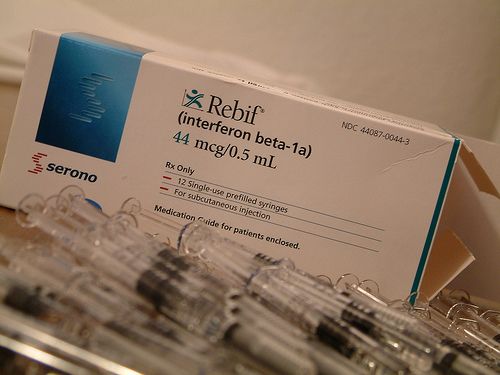
Rebif, or interferon beta 1- a, is a manufactured medication used for the treatment of multiple sclerosis. Interferons are naturally-occurring proteins produced by the immune system and they help to ward off infections, although it is not fully understood how interferon medications aid against multiple sclerosis attacks.
Rebif, which has the same composition as the disease-modifying medication Avonex, was introduced in Europe in 1998 and approved by the U.S. FDA in 2002. With regular use, Rebif has been proven to be 30 to 40% effective in reducing multiple sclerosis relapses in some patients. Just like the other disease-modifying medications, *Rebif is not a cure for multiple sclerosis, and it is not effective in every patient.
Rebif Advantages
- Rebif is administered three times a week, making it one of the least-administered disease-modifying medications
- Rebif has a higher dose and administration frequency of interferon beta – 1a, so its effectiveness is considered higher than that of Avonex’s, which is the same interferon
- Rebif comes in easy-to-administer syringes
- This medication has a proven track record (in Europe) dating back to 1998
Rebif Drawbacks
- Being one of the interferon medications, Rebif can cause flu-like side-effects: fever, chills, nausea, and body aches
- Rebif can cause any of the following other side-effects: depression, anemia, seizures (rare), heart abnormalities (rare), abnormal liver function readings, thyroid abnormalities, and reduced immunity to infections and illnesses
- This medication needs to be refrigerated during certain circumstances
*any decision to take medication should be thoroughly discussed with your doctor
References: The U.S. Food and Drug Administration, The National MS Society, All About MS- Rebif

